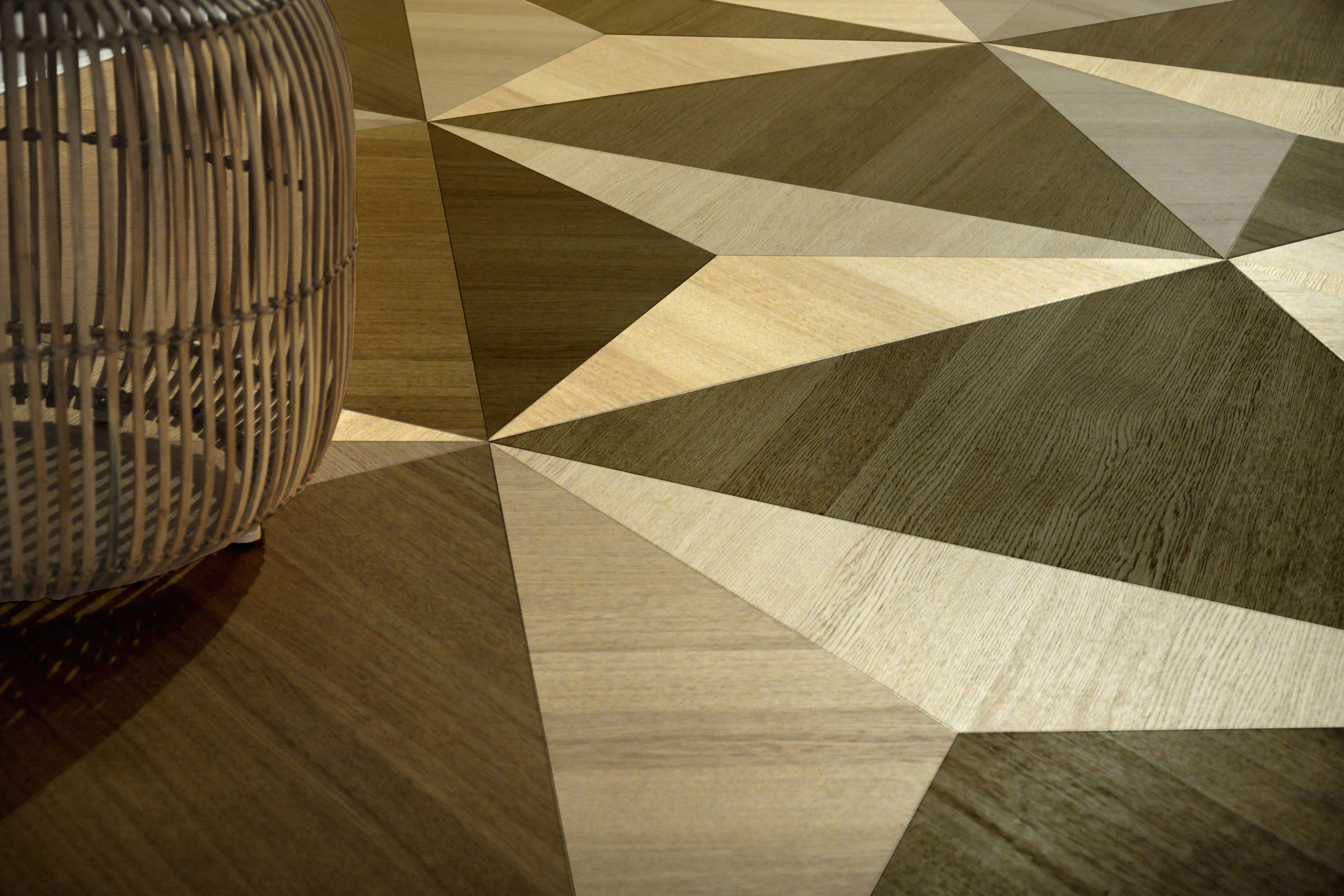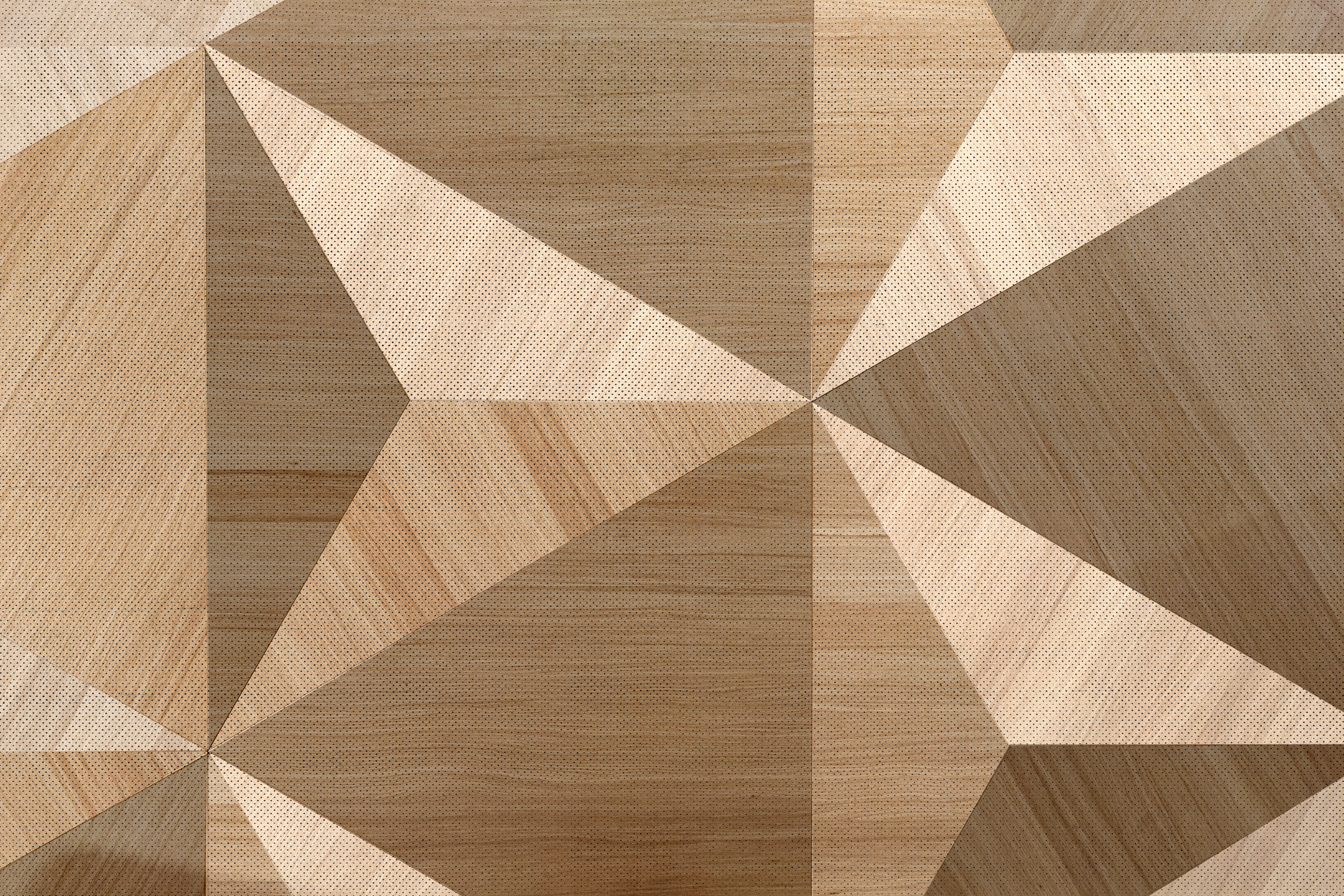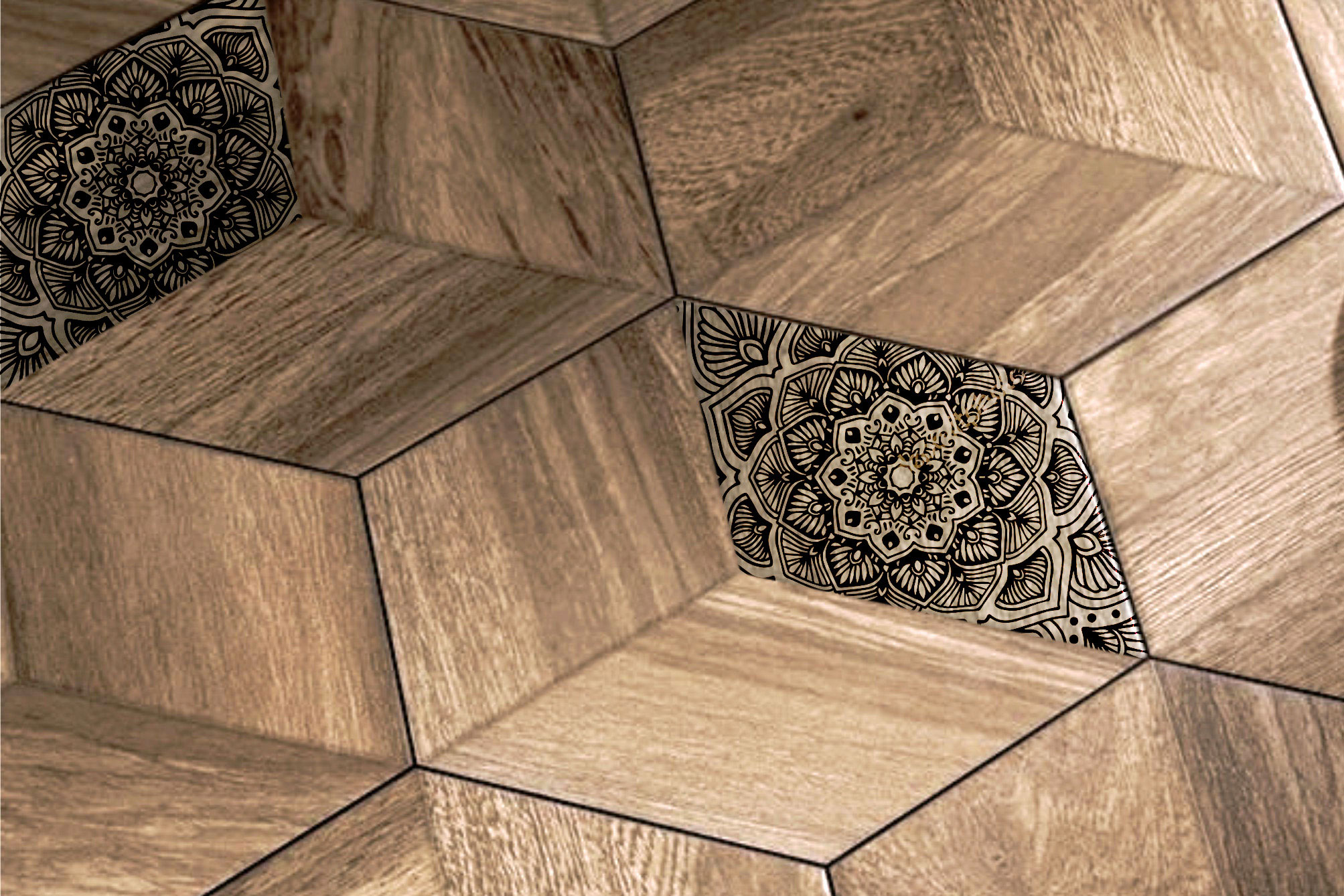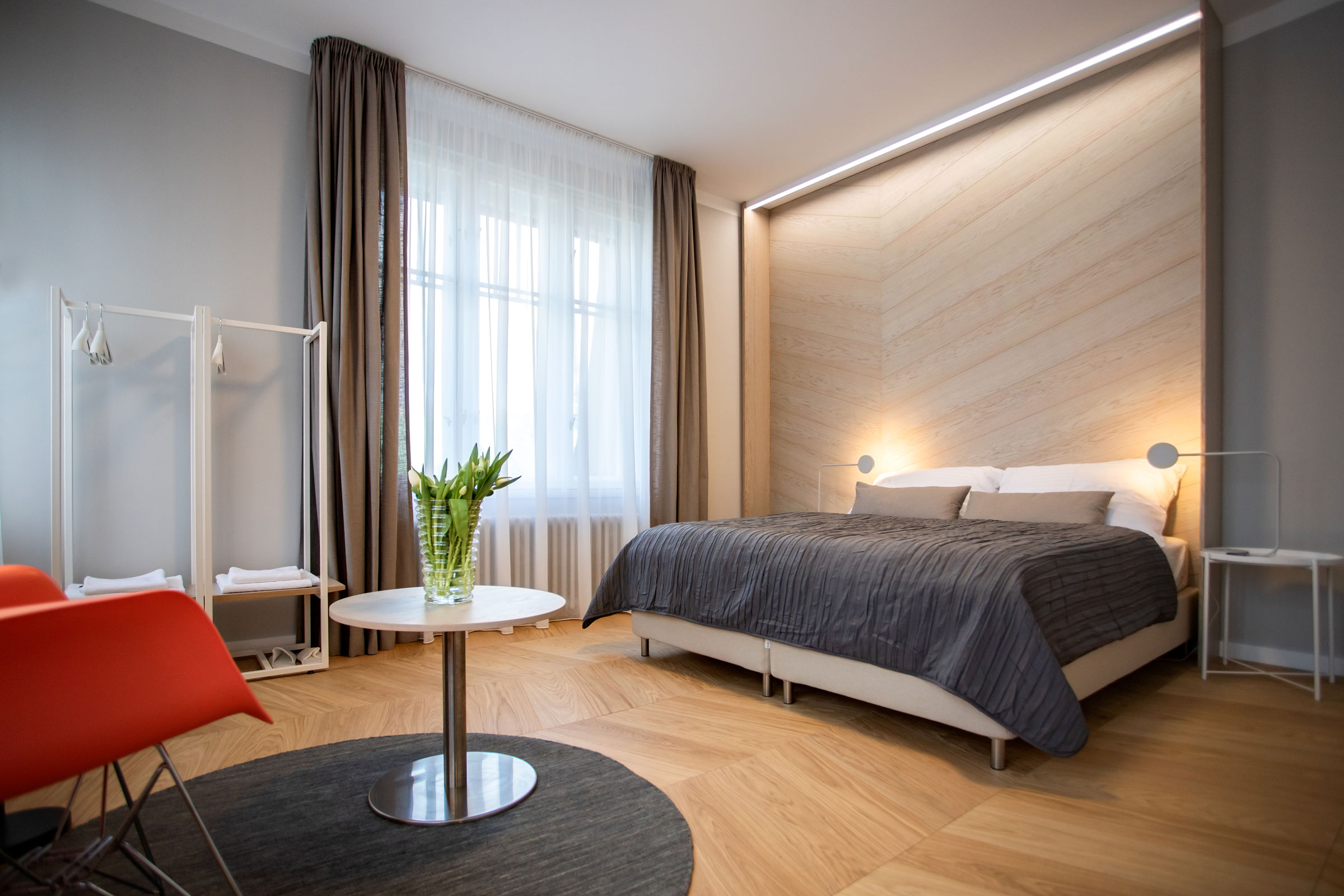- Multiple design possibilities allow you to mix and match for one-of-a-kind patterns in any room.
- All of the wood is sourced from sustainably managed PEFC- and FSC-certified forests.
- This wooden tile system comes in three shapes and six types of oak.
If you’re looking for a way to liven up a room, europlac’s sustainable wooden tile system Pythagoras can help.
German brand europlac is known for its innovative, sustainable, and stylish wood products, from furniture to interior woodwork. Now Pythagoras turns simple geometric shapes into an intricate wooden tile system you can use on the floor, wall, or ceiling. Designed by Katrin de Louw, the minimalist-yet-distinct concept speaks volumes as an accent wall, an intriguing restaurant floor, or even a showroom ceiling.
“Pythagoras is a limitless playground for designers and interior architects, both in its format and in its combination options,” Louw says. “Thanks to the sustainable material wood and the manual laying, Pythagoras is a timeless and permanent jewel for every interior.”
With infinite design possibilities, all that’s missing is an imaginative vision to shape these wooden tiles into something great.
Design Details
1. Three Geometric Shapes

Courtesy of europlac
Squares, triangles, and hexagons are the three staple shapes that make up the wooden tile system, each bringing its own character to Pythagoras. Squares, for instance, are said to stand for balance, uniformity, and calmness, while triangles emanate strength and hexagons bring harmony. Because the tiles are laid manually, the shapes can be combined into any design.
2. Six Types of Oak

Courtesy of europlac
Pythagoras tiles are available in six types of oak, in colors ranging from creamy white to rich browns, gray, and solid black. Designers can choose to work with tiles in the same shade of oak or a combination of tiles. Contrasting light and dark woods can create 3D-like effects.
3. Sustainability
Pythagoras uses wood from sustainably managed PEFC- and FSC-certified forests that’s harvested and processed exclusively in Europe, where europlac is based. The tongue and groove connection of the tiles, which allows individual pieces to fit together while lying flat, also enables pollutant-free recycling, as no chemicals or adhesives are needed to glue the pieces together.
4. Customization

Courtesy of europlac
Want something more than these colors and shapes can give? The option to customize the wooden tile system allows you to dream up whatever you want depending on the room and desired look. For example, designers may opt for different thicknesses and sizes, as well as tiles with fire or sound protection technology.


